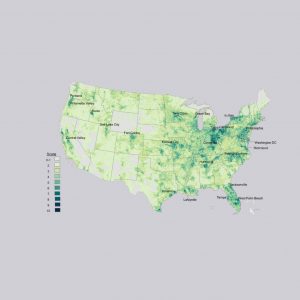City’s Stormwater Quality Trading to Reduce Pollution
City’s stormwater quality trading to reduce pollution
Like many municipalities, the City of Albert Lea, Minnesota, (the City) must reduce stormwater pollution because of regulatory requirements. Pollution- reduction projects in developed, urban areas can be extremely expensive to implement. To meet the permitting requirements, the City partnered with the Shell Rock River Watershed District and obtained a grant to establish a water quality trading program. Water quality trading has long been touted as a cost-effective way to meet clean water requirements; however, adoption has been limited because of scientific and regulatory constraints. RESPEC, along with our teaming partner TBL Consultants LLC, was hired to develop the program’s policies and technical requirements as well as a manual for other cities to create and implement stormwater trading programs.
RESPEC used multiple models to estimate the City’s baseline pollution discharge to Fountain Lake. We used this information to determine the market demand, which is how much pollution the City could offset by funding upstream watershed improvements. We also calculated the extent to which upstream pollution- reduction actions could potentially benefit downstream waters. For this calculation, we used the HSPF model to determine the fate and transport of pollutants from upstream subwatersheds to Fountain Lake and then determined the amount of pollution that would be reduced from various types of watershed improvement projects. These analyses established the number of credits that could be sold from each project. After the supply and demand costs were established, the cost-effectiveness of using this market-based approach became clear with most of the agricultural credits costing a fraction of an urban-reduction project.
Establishing a water quality trading program requires a robust legal and administrative organizational structure along with a high degree of involvement and negotiation with regulatory agencies, environmental organizations, and community stakeholders; however, the benefits that can be obtained from a well- developed, at-scale program can provide tremendous value. RESPEC can use this experience to meet the demand for implementing water quality trading programs throughout the US.



Stay in Touch